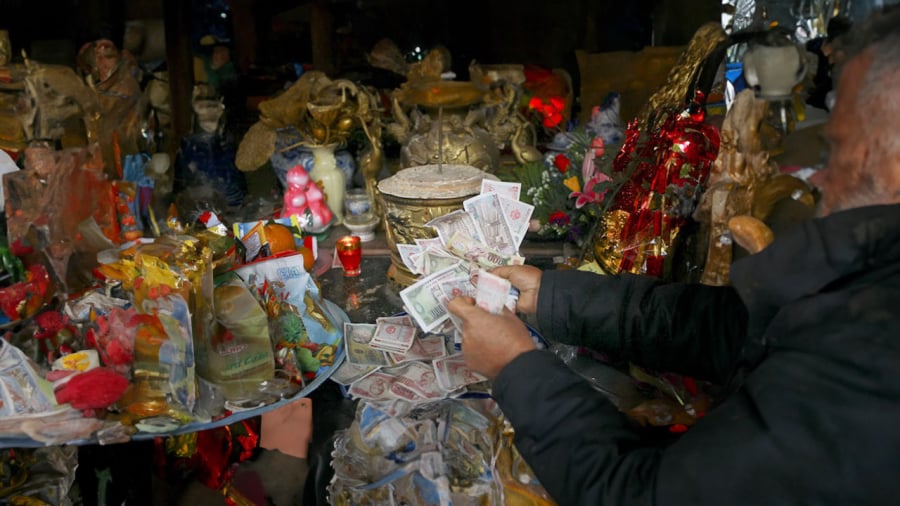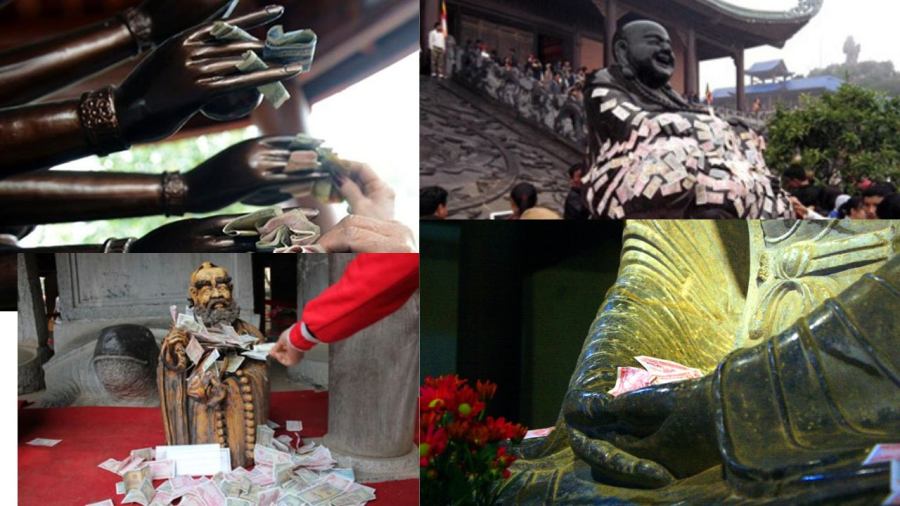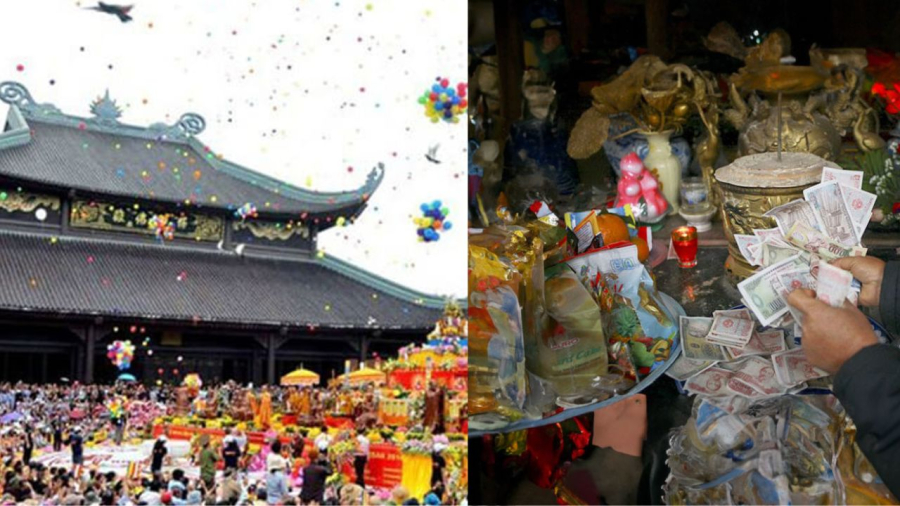The act of visiting temples and pagodas during the first days of the year is not only a fun way to welcome the spring but also an important ritual for many Vietnamese. It is believed that these rituals bring good fortune and prosperity for the year ahead.
Some people think that the more sincere the ritual and the more valuable the offerings, the more likely the gods and Buddhas will witness and bestow their blessings. As a result, many people travel far and wide to different temples, leaving real money on the altars or even placing it in the hands of statues. They believe that the money they offer will bring them luck and that keeping it in their wallets will attract more wealth.

Is Real Money Considered a Lucky Charm?
Money is a representation of energy and wealth. It is also a country’s asset and holds great importance. While offering money at altars may be a way to seek blessings, it is not considered an appropriate offering in the practice of Feng Shui. Instead of placing money directly on the altar, it is better to use it to purchase offerings, as money is simply a medium of exchange. If one wishes to make a donation and accumulate good karma, it is more appropriate to put money into the donation box.
Furthermore, placing real money on altars can be seen as disrespectful to the religion and an attempt to bribe the divine. Visiting temples and praying to the gods and Buddhas is about seeking blessings, repenting, and doing good deeds to increase one’s luck and merit. Therefore, it is advisable to refrain from placing real money on altars as offerings.
Keeping real money in your wallet without putting it into circulation does not bring positive energy. Money generates value and wealth when it is circulated and creates surplus value.

Additionally, leaving real money as offerings in crowded places can lead to confusion and disputes over whose money is whose, which is not in line with Feng Shui principles.
Money in circulation can be exposed to bacteria, and placing such money on altars can disrupt the energy field of the worship area. It is also considered a major taboo in Feng Shui to place old, dirty, or defaced money on altars, as it can attract negative energy and cause chaos in the worship area. It is important to avoid using such money when buying offerings, as it may introduce negative energy into the worship space.
Placing paper money near a fire source, such as burning incense, can also be dangerous, as it may catch fire and cause an accident. Therefore, it is essential to carefully consider the potential risks and benefits of placing real money on altars versus making donations to accumulate merit.

Tips for Visiting Temples During the First Days of the Year to Attract Good Luck
Visiting temples during the first days of the year is a beautiful tradition in Vietnamese culture, showing respect to the divine and seeking blessings for the year ahead. It is also an enjoyable way to welcome the spring and bring peace of mind. When visiting temples, it is important to be mindful of your words and actions, avoiding any arguments or displays of anger. It is also advisable to refrain from drinking alcohol to prevent any mishaps during your journey.
When choosing offerings for the gods and Buddhas, it is essential to be thoughtful and sincere, especially when selecting meat dishes such as roasted pork, chicken, duck, or xoi (sticky rice). If purchasing these offerings at religious sites, be sure to carefully inspect the food to ensure it is fresh and safe to consume, as consuming spoiled food can lead to digestive issues.
To avoid crowds and ensure a safe experience, try to visit temples during less busy times, and be mindful of others when burning incense to prevent accidents or fires. Remember that sincerity and respect are more important than the quantity or value of your offerings. As an old saying goes, “A sincere heart is better than a full table, and praying from a distance is better than pushing and shoving in front of the gods and Buddhas.”
When visiting temples during the first days of the year to seek good fortune, it is crucial to maintain a respectful attitude and be mindful of your words and actions to avoid turning your quest for luck into misfortune.
This information is for reference only and is not intended as professional advice.





































